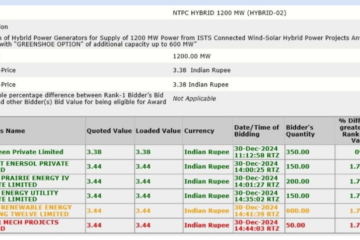Turning plastic waste into a valuable asset: How recycling projects can earn carbon credits in India
Plastic waste can be a valuable resource for businesses looking to earn carbon credits while also contributing to a more sustainable future
Plastic waste is a major environmental concern in India, where improper disposal and recycling practices have led to significant pollution of land and water bodies. However, plastic waste can also be a valuable resource for businesses looking to earn carbon credits by implementing recycling projects.
The VCS methodology VM0006 – Plastic Waste Processing and Recycling for Emissions Reductions – provides a framework for calculating greenhouse gas emissions reductions achieved through the processing and recycling of plastic waste. The methodology can be applied to a range of plastic waste processing and recycling projects, including sorting, washing, and pelletizing.
Several Indian companies have successfully implemented plastic waste recycling projects and earned carbon credits through the VM0006 methodology. For example, Polygenta Technologies Limited has generated over 150,000 carbon credits through its polyester recycling project. RIL SEZ in Mumbai, RIL Hazira, Heritage Foods India Ltd., and HPCL-Mittal Energy Ltd. are among the other Indian companies that have earned carbon credits through plastic waste recycling.
By implementing plastic waste recycling projects and working with carbon offset registries, Indian businesses can turn their waste reduction efforts into a valuable asset while also contributing to a more sustainable future.
It is important to note that plastic waste processing and recycling projects must meet certain requirements under the VM0006 methodology to be eligible for carbon credits. These include documenting the quantity and quality of plastic waste processed and recycled, verifying the actual quantity of emissions reductions achieved, and demonstrating that the project meets local environmental and social standards.
Overall, plastic waste recycling projects can provide significant environmental and economic benefits while also earning carbon credits. Businesses interested in implementing such projects should carefully evaluate the requirements of the VM0006 methodology and work with experienced consultants to ensure compliance and maximize the potential benefits.
The projects in India that have earned carbon credits through plastic recycling:
| Project Name | VCS Methodology | Carbon Credits Generated | Reference |
|---|---|---|---|
| Polygenta Technologies Limited | VM0006 | 151,950 | [1] |
| RIL SEZ, Mumbai | VM0006 | 13,259 | [2] |
| RIL, Hazira | VM0006 | 287,286 | [3] |
| Heritage Foods India Ltd. | VM0006 | 62,423 | [4] |
| HPCL-Mittal Energy Ltd. | VM0006 | 207,245 | [5] |
Note: The carbon credits generated may have been subject to changes due to subsequent verification and certification processes.
References:
- https://www.cdmgoldstandard.org/projects/polygenta-technologies-limited-plastic-waste-management-plant
- https://www.cdmgoldstandard.org/projects/reliance-industries-limited-sez-plastic-recycling-project
- https://www.cdmgoldstandard.org/projects/reliance-industries-limited-hazira-plant-recycling-plastic-waste
- https://www.verra.org/project/heritage-foods-india-limiteds-recycling-plastic-waste-at-manufacturing-plant-2/
- https://www.verra.org/project/hpcl-mittal-energy-limiteds-plastic-recycling-project/
